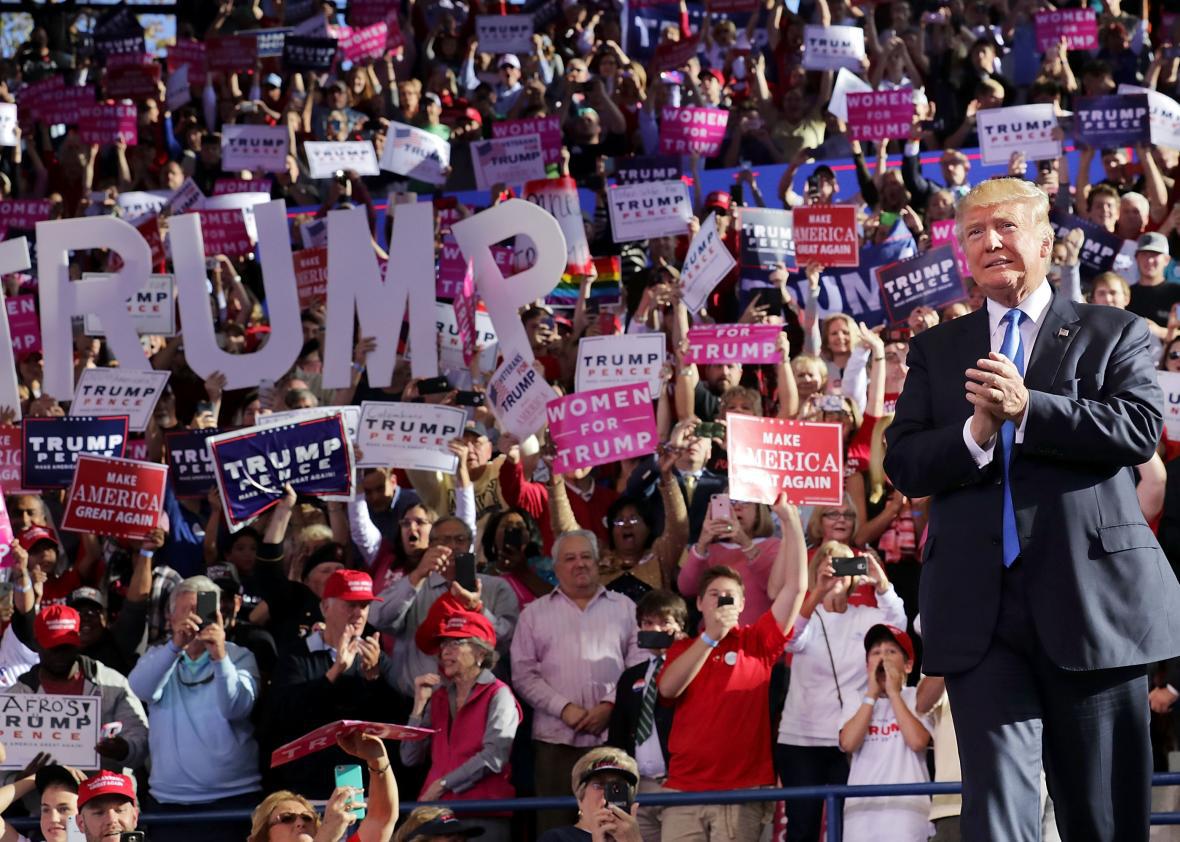One of the leading publishers of fake viral news told the Washington Post that he thinks his work may have helped put Donald Trump in the White House, and that was not his intended result.
Paul Horner publishes a series of fake URLs that cloak themselves to appear to be being coming from major media companies, such as ABC and CNN and then disseminates fake news stories across Facebook. Some of his recent hits include stories saying that Obama was invalidating the election results and banning the national anthem at sporting events.
In a fascinating interview worth reading in its entirety, Horner told the Post that he specifically targeted Trump supporters during the election because he felt they were more willing to accept the lies of Trump and thus would be more willing to accept his fake news as real if it coalesced with their world view:
Honestly, people are definitely dumber. They just keep passing stuff around. Nobody fact-checks anything anymore—I mean, that’s how Trump got elected. He just said whatever he wanted, and people believed everything, and when the things he said turned out not to be true, people didn’t care because they’d already accepted it. It’s real scary. I’ve never seen anything like it.
…
My sites were picked up by Trump supporters all the time. I think Trump is in the White House because of me. His followers don’t fact-check anything—they’ll post everything, believe anything. His campaign manager posted my story about a protester getting paid $3,500 as fact. Like, I made that up. I posted a fake ad on Craigslist.
…
I thought they’d fact-check it, and it’d make them look worse. I mean that’s how this always works: Someone posts something I write, then they find out it’s false, then they look like idiots. But Trump supporters—they just keep running with it! They never fact-check anything! Now he’s in the White House. Looking back, instead of hurting the campaign, I think I helped it. And that feels [bad].
Horner added that he hates Trump, he was doing this work for the money, and that he didn’t think it was possible for Trump to be elected. When pressed on whether he was actually taking credit for Trump being president-elect, he repeatedly said, “I don’t know.”
Whether you can take someone who creates and propagates untruths for a living at his word as to what his motives were and why he felt like he was success is up for debate. But the influence of fake news sites was undeniable, to the point that Facebook and Google have shifted their ad policies to try to rein in these sorts of sites.
BuzzFeed published an analysis on Wednesday showing a spike in the success of fake news sites in the last three months of the campaign to the point that the top Facebook posts from the 20 best-performing election stories from 19 major news websites generated fewer shares, reactions, and comments than those from “hoax sites and hyperpartisan blogs.” New York magazine on Thursday pointed out that this was just an analysis of “top” posts—generally the posts that came from a site’s individual Facebook page—and not overall shares, reactions, and comments across all of Facebook. A more accurate study, for instance, would have included the total number of shares, comments, and reactions posted from personal Facebook pages and pages that didn’t produce the “top” post. It also didn’t account for paid interactions versus unpaid interactions .
Still, the fact that Horner’s work and work like his is having anything resembling the same impact as real journalism demonstrates that maybe it’s not crazy to think that it might have had an impact in one of the country’s closest elections on record.
